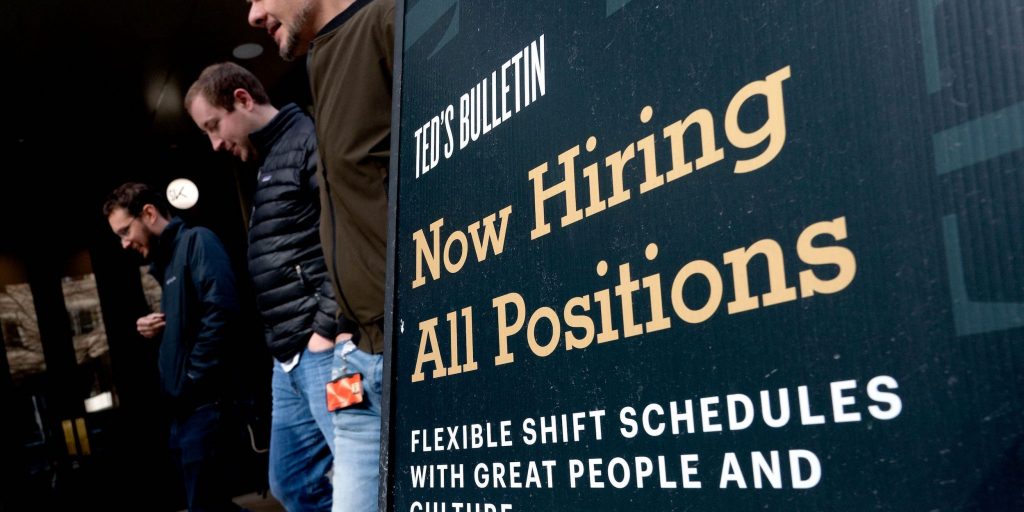- The US boasted 11.3 million job openings in May, according to JOLTS data published Wednesday.
- That landed above the median estimate of 11 million and below the April count of 11.7 million.
- The report signals the labor shortage eased as the country neared pre-crisis employment levels.
Job openings slid again through May as the US economy crept closer to a full recovery and the labor shortage seemed to ease.
The number of job openings throughout the economy fell to 11.3 million at the end of May, according to Job Openings and Labor Turnover Survey, or JOLTS, data published Wednesday morning. That landed above the median estimate of 11 million openings from economists surveyed by Bloomberg. It also marks the second month in a row of declines.
The April sum was revised to 11.7 million from 11.4 million, according to the report.
Openings fell the most at professional and business services firms, with such companies shedding 325,000 openings through May. Durable goods manufacturers followed with a decline of 138,000 openings, and nondurable goods manufacturers erased 70,000 openings.
Few sectors showed notable increases in labor demand. Openings rose by 104,000 at retailers, and hotels and restaurants notched a 73,000-opening uptick. The majority of sectors saw openings fall slightly, hinting at broad improvement in the still-healing labor market.
The monthly JOLTS survey provides economists fresh insights into the balance between available workers and labor demand. The gap between the two has come to define the labor shortage, with companies complaining about a lack of workers to fill near-record openings. Unemployed Americans, meanwhile, point to factors like child care costs, fears of catching COVID, and unattractive wages as reasons for staying on the labor market's sidelines.
The Wednesday report reveals little improvement in matching workers with jobs. The ratio of available workers to job openings held at 0.5, matching the all-time low first seen in March. That means there were two openings for every available worker in May. Such a low ratio is typically only seen far into an economic cycle, when the labor market is usually in its tightest state. The current gap signals labor force participation — Americans either working or actively seeking work — has a long way to go before worker supply matches demand.
The slight easing in the labor shortage echoes the encouraging signs from the May payrolls report. Data out in early June showed the US creating 390,000 jobs through May, exceeding economist forecasts and nearly doubling the average job growth seen before the pandemic. Payroll creation is expected to have slowed in June, but with the economy within spitting distance of matching its pre-crisis job count, the stronger-than-usual growth signals companies are still finding workers to fill openings.
Dit artikel is oorspronkelijk verschenen op z24.nl
